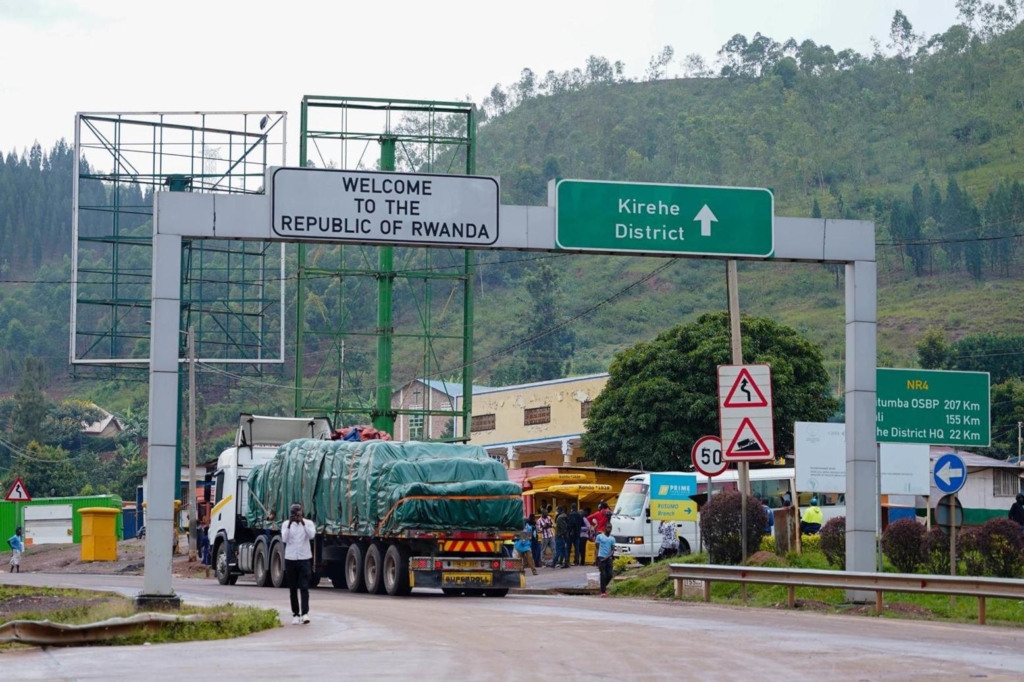Rwanda enahnces cross-border Payment Systems
Rwanda and Tanzania are integrating their national payment systems, enabling instant cross-border transfers between bank accounts and mobile money wallets — a pilot that could scale into a unified East African digital payments market.

Rwanda and Tanzania have entered technical discussions to interconnect their national retail payment systems, marking a structural leap toward real-time, low-cost cross-border money transfers in East Africa. The initiative links Tanzania’s Instant Payment System (TIPS) with Rwanda’s National Payment Switch (RSWITCH), enabling individuals and businesses to move funds instantly between bank accounts and mobile money wallets across borders without routing payments through expensive correspondent banks.
Today, cross-border payments in the region can take several days and incur fees of 6–12% due to intermediary banking chains. By allowing domestic payment rails to interact directly, the Rwanda–Tanzania linkage aims to collapse settlement times to seconds and costs to near-domestic levels. For a region where mobile money is the dominant financial channel and 70% of adults transact digitally, instant cross-border payments are the missing infrastructure required to unlock seamless trade and financial inclusion.
From November 10–14 in Kigali, central banks, payment-system operators, and regional partners such as AfrikaNenda and the Mojaloop Foundation met to finalize interoperability architecture, regulatory standards, governance, security protocols, and dispute resolution mechanisms. The work session focused on aligning technical and legal frameworks so that payments originating from one country are recognized, authenticated, and settled within the rails of the other. The discussions also covered cyber-risk management, merchant integration, and cost-recovery models to ensure sustainability.
Officials described the initiative as a foundational moment in regional integration. Eng. Daniel Murenzi, Principal Information Technology Officer at the East African Community (EAC) Secretariat, highlighted that the effort “moves us closer to a single regional instant payment ecosystem that facilitates secure, affordable transactions across borders.” The Bank of Tanzania emphasized that the project demonstrates commitment to creating a robust technical and operational framework for cross-border payments and expanding financial inclusion.
The integration is part of a proof-of-concept under the Eastern Africa Regional Digital Integration Project (EARDIP), funded by the World Bank and coordinated by the EAC Secretariat. EARDIP focuses on reducing fragmentation in digital infrastructure, harmonizing regulations, establishing interoperable digital platforms, and lowering transaction costs for citizens and businesses. By proving that two national payment switches can communicate directly, the Rwanda–Tanzania pilot becomes the blueprint for expanding the system to all EAC member states, eventually forming a unified digital payments market across the bloc.
The macroeconomic implications are significant. Faster settlement reduces cash-flow bottlenecks for SMEs and informal traders who rely on mobile money to finance working capital. Removing payment friction can boost intra-regional trade by up to 30%, according to regional estimates, as businesses will no longer need to rely on cash, intermediaries, or manual reconciliation. Diaspora remittances sent through mobile channels will also become cheaper and faster, retaining more value for households.
For consumers, the benefit is straightforward: sending money across the border will become as simple, instant, and affordable as sending a domestic payment. For businesses, real-time settlement reduces operational friction and enhances liquidity, supporting supply chains, logistics, and e-commerce. For central banks, the system strengthens formal financial channels and increases transparency, improving oversight and reducing dependence on U.S.- or Euro-based correspondent networks.
If successful, the initiative will position East Africa as a global leader in regional digital payments integration, turning interoperability into a competitive advantage and accelerating the continent’s transition toward a cash-light, real-time digital economy.





